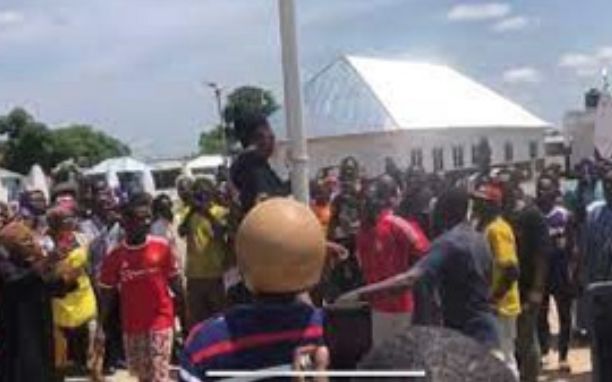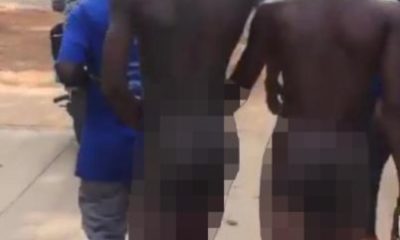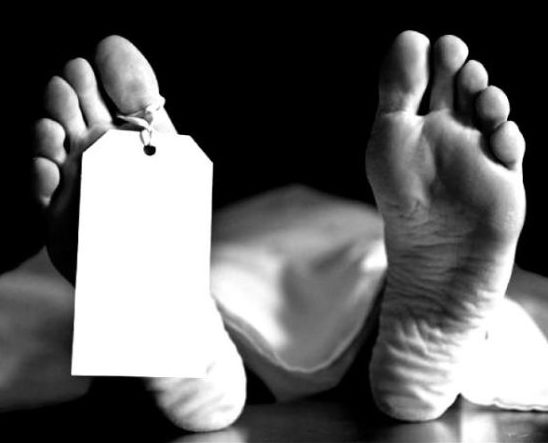Crime Africa
How four teenagers hijacked a Nigeria Airways plane in 1993

Monday, October 25, 1993, will always be remembered as the day four Nigerian teenagers went the extra mile to make public their grievances following the annulment of the 1993 general elections by General Ibrahim Babangida.
The election which is considered one of the most peaceful in the country was meant to usher in the candidate of the Social Democratic Party (SDP), Chief Moshood Kashimawo Olalekan (MKO) Abiola who many considered the winner of the polls that year.
That wasn’t the case as the military head of state at the time cited issues of vote-buying and the need to protect the country’s judiciary as the reason the results were annulled. However, decades after, Babangida said in a recent interview on Arise TV that some top officials in the military would have staged a violent coup if he did not annul the election.
“If it materialized, there would’ve been a coup d’état which could have been violent. That’s all I can confirm,” Babangida said.
While that period in Nigeria’s history came with a lot of uncertainty following rife protests, these four young men Richard Ogunderu, Kabir Adenuga, Benneth Oluwadaisi, and Kenny Rasaq-Lawal dominated the headline for the same protest but they took a different and more daring twist. They had hijacked a Nigeria Airways aircraft flying from Lagos to Abuja and diverted it to Niamey, Niger Republic.
How did it happen?
According to accounts, the four men boarded the flight with top businessmen and senior government officials on board while they waited patiently for the pilot to make the announcement that the passengers could unfasten their seat belts.
Ogunderu who recounted the incident said he signaled the others and they seized the plane. According to him, the government officials were bewildered to hear a voice other than that of the pilot addressing them from the cockpit.
“Ladies and gentlemen, this plane has been taken over by the Movement for the Advancement of Democracy,” the rather tiny voice said. “Remain calm, we will not harm you. You will be told where the plane will land you.”
He recalled in an interview in 2009 as quoted by icirnigeria that “the air hostesses were almost stone-dead, gripped by fear. They must not move else they would ‘be dead.’”
A passenger who was in the toilet at the time of the take-over remained indoors until the hijackers pulled him out.
“We wanted change. Our action confirmed that when a system is inhumane, it could produce the extreme in all of us,” Ogunderu said. “A system that cares not, a system that does not listen to our cries and our woes, a system that wants to exterminate us does not deserve a day of existence.”
Ogunderu was the leader of the pack and he narrated how he kick-started the hijack.
“I walked into the cockpit and seized the process, and then the others followed me. Two of us stood in the plane to intimidate the passengers. We took over the plane and asked the pilot to head for another country.”
How they got to Niamey?
According to independent sources who spoke to icirnigeria, the initial plan of the hijackers was to divert the plane to Germany, however, that became impossible because they would have run out of fuel. The next available stop at the time was Niamey, the capital of Niger. Before they had landed, they already made known their intentions and distributed their demands among the passengers. The message was clear – they were calling on the Federal government to overturn the annulment of the June 12 election and swear in MKO Abiola, the acclaimed winner of the election.
A 72 hours notice was given to meet their demands or they will set the plane ablaze. However, they allowed 34 passengers to go and held onto the remaining 159 among whom were top Nigerian government officials.
On landing, the hijackers found hundreds of armed gendarmes at the airport. The security force which included the Nigerian police could not attack the plane by force, as they were unaware whether the attackers had military training or possessed explosives that could blow up the plane.
How were they caught?
After several attempts at negotiation, the gendarmes stormed the plane to rescue the passengers. Ogunderu said: “They thought we were asleep, so they came under the cover of the night and fired several shots. They bombarded the plane. I think one person died.”
They were apprehended, handcuffed, and taken to a prison in a community with day temperature in the range of 55 degree centigrade. “We were poorly fed. We could neither speak Hausa nor French and nobody spoke English to us,” Ogunderu said.
“We were fired by the need to actualize June 12 through any means possible. We wanted to demonstrate rare courage that we could save Nigeria from the shackles of repression by giving a sense of courage to Nigerians.”
But he admitted that though they were motivated by the quest for freedom — freedom to choose our leaders — they “reacted in an extreme manner”. As punishment, Ogunderu and his colleagues spent nine years and four months in prison in Niamey.
They had no contact with relatives and loved ones, from morning till night, for nine years. Speaking in June, Pa Yemi Ogunderu who is the father of Richard Ogunderu recounted the moment he was picked up following the involvement of his son in the hijacking.
“I was actually arrested by the Directorate of Military Intelligence, but I didn’t immediately know the identity of those who arrested me. I was picked up not very far from my residence at Surulere, off Adelabu Street (Lagos), and detained. I didn’t know where I was taken to until after 18 days. I spent a total of 70 days in detention,” he said.
“All I knew was that where I was being detained was near the ocean. I couldn’t see outside but I could feel the impact of the ocean waves behind the window of the room where I was locked up. It was about 18 days later that I discovered that I was being detained on the premises of Bonny Camp and that I was actually arrested by the Directorate of Military Intelligence. I spent about 67 or 68 days at Bonny Camp from where I was moved to Alagbon Close, where I spent another two or three days before I was eventually released,” he added.
My only offense was that I am Richard’s father, even though I didn’t do anything wrong. But their investigation later showed that I knew nothing about the incident and they themselves mentioned it that they were convinced that I knew nothing about it,” he concluded.
Source: mynigeria.com
-

 Lifestyle4 weeks ago
Lifestyle4 weeks agoRoad Safety Authority narrates how buttocks causes road accident
-
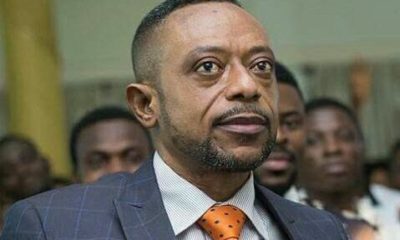
 GENERAL NEWS1 month ago
GENERAL NEWS1 month agoWhy 15 police officers stormed Owusu Bempah’s church – Kumchacha narrates
-
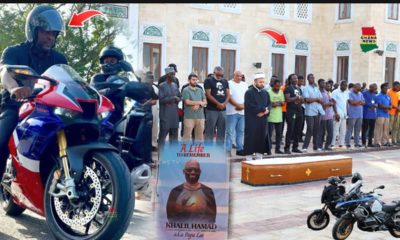
 GENERAL NEWS4 weeks ago
GENERAL NEWS4 weeks agoWatch how Ibrahim Mahama rode Honda superbike to pay last respects to late friend
-
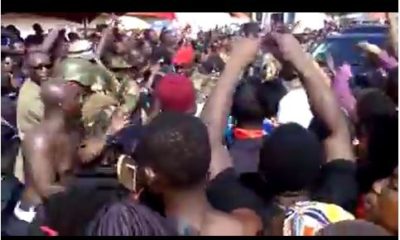
 GENERAL NEWS1 month ago
GENERAL NEWS1 month agoHow Offinso residents storm destooled queen mother’s house, demand for new chief
-

 South Africa News1 month ago
South Africa News1 month agoWoman thrown out of a speeding taxi while on her way to work
-

 GENERAL NEWS2 weeks ago
GENERAL NEWS2 weeks agoDeadly clash between youth and navy personnel results in two deaths at Tema Manhean
-

 SHOWBIZ KONKONSAH2 weeks ago
SHOWBIZ KONKONSAH2 weeks agoJunior Pope’s Death: Video of John Dumelo refusing to join canoe for movie shoot over safety concerns resurfaces
-
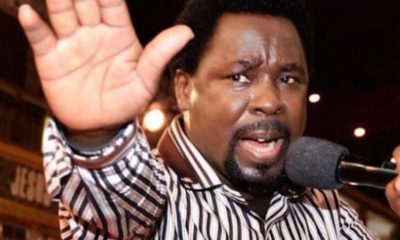
 News Africa2 months ago
News Africa2 months ago‘Satanically dubious’ – SCOAN releases statement on BBC’s report about TB Joshua, church


